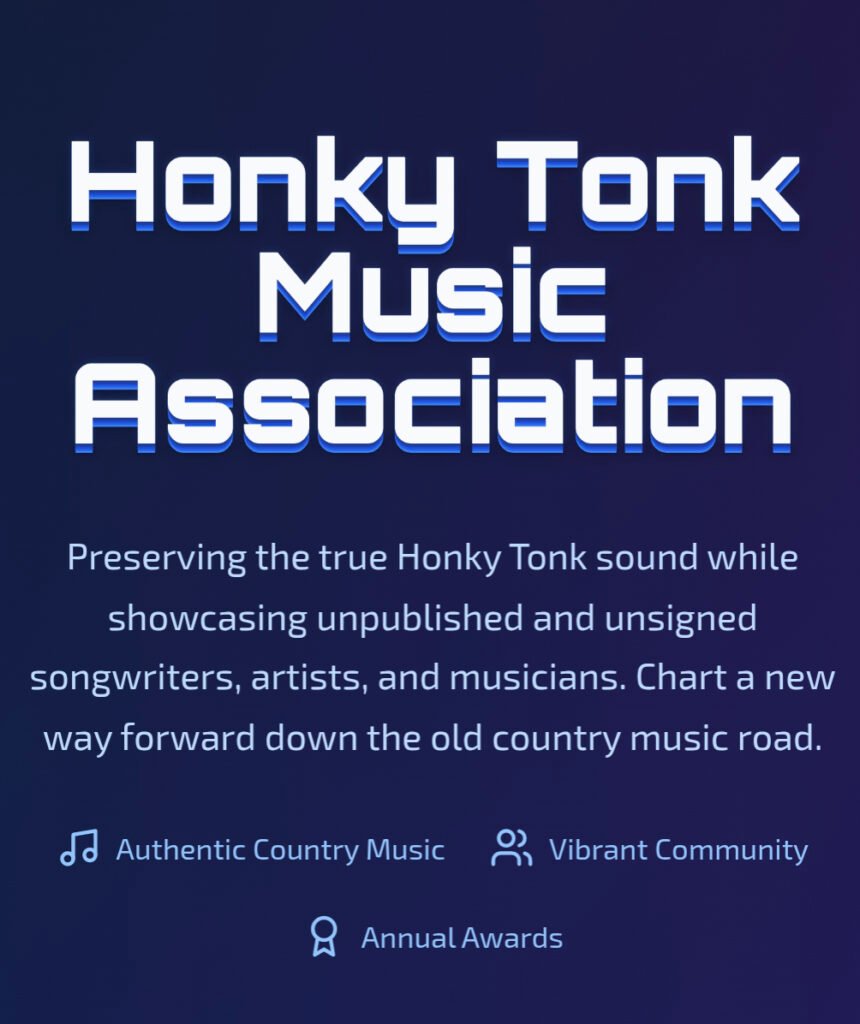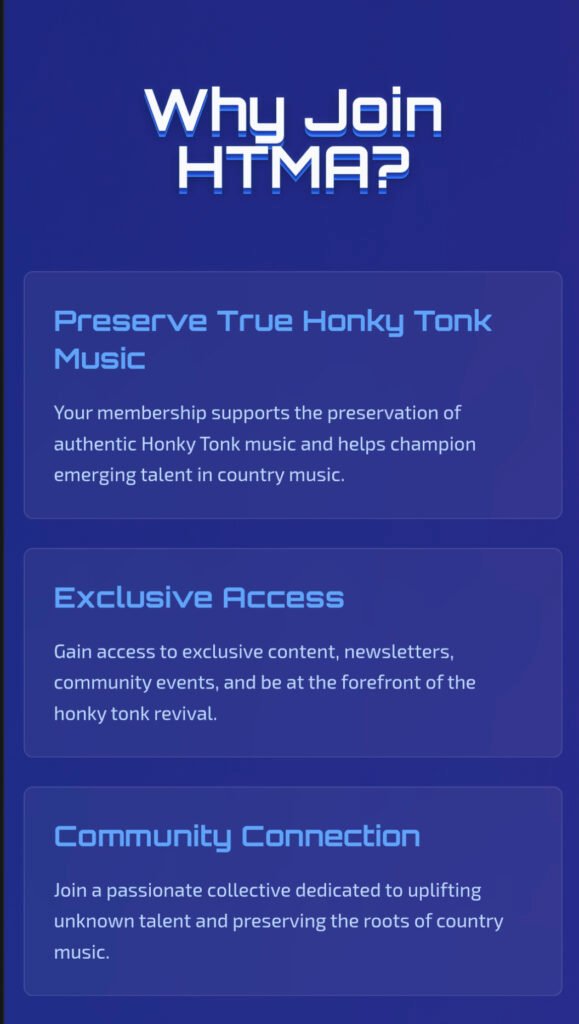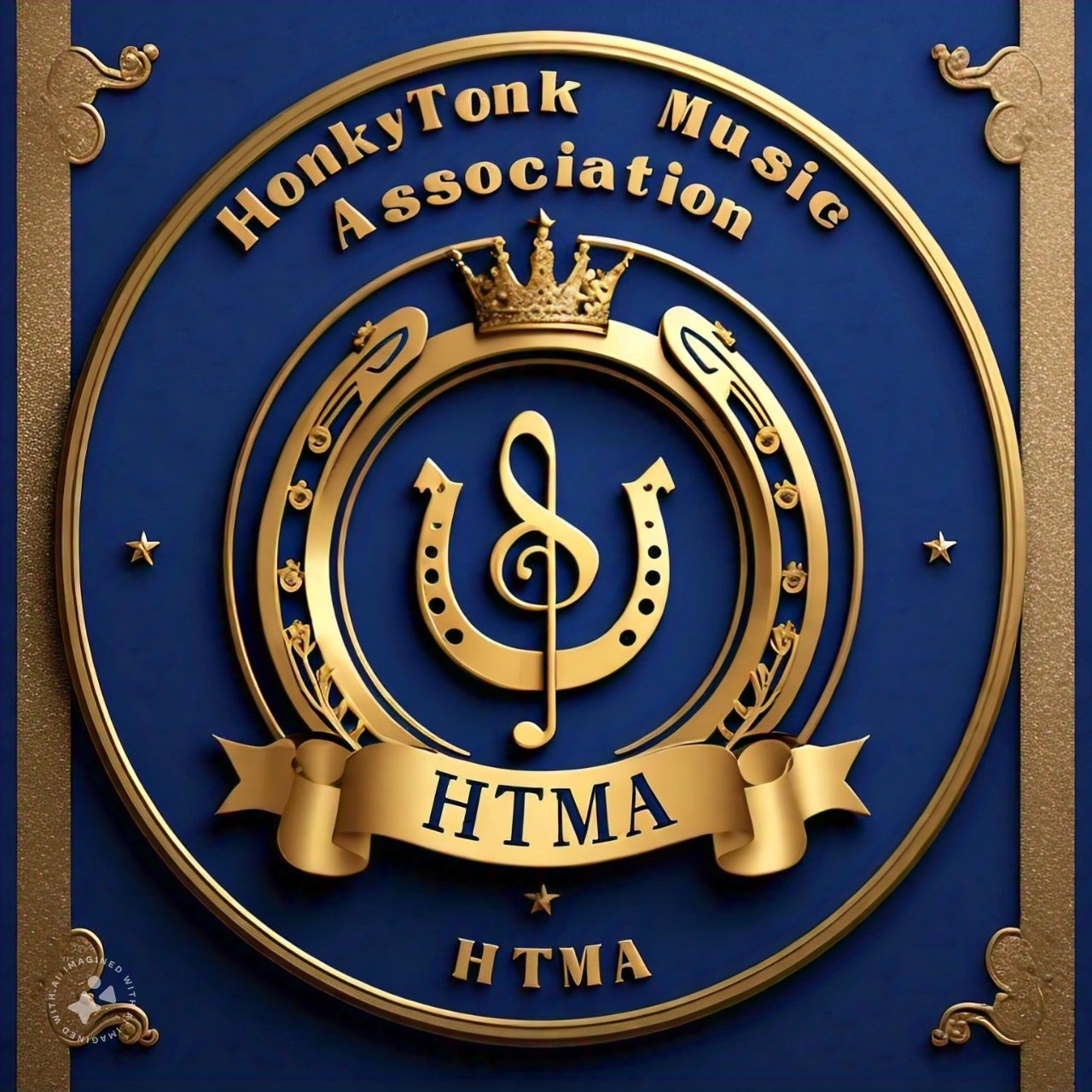

MEMBERSHIP REGISTRATION

- Silver Membership
- ‘Fan Membership’ Level’,
- ‘Voting rights in HTMA awards’, ‘
- Access to member-only content’,
- ‘Monthly newsletter updates’,
- ‘Community forum access’, ‘
- Event notifications’,
- ‘Automatic enrollment in drawings and giveaways ‘,
- Members discounts on Special Events
- Selected Voting rights in HTMA awards
- Access to member-only fan content
- Monthly newsletter updates
- Community forum access
- Early event notifications

- Gold Membership
- Unpublished/Unsigned Honky- Tonk Songwriters, Musicians, Performers MEMBERSHIP APPROVAL REQUIRED. (Application usually processes in 5 to 7 business days) Being a member does not guarantee all your songs will be accepted. Songs must have the honky tonk sound. Only true Honky Tonk will be played on Honky Tonk Music Association channel. Refund only if denied membership. Otherwise no refunds. We reserve the right to approve or deny any application. *
- All Silver membership benefits
- GOLD Voting rights in selected HTMA decisions
- Profile customization options
- Paid performance opportunities
- Potential HTMA Awards Nominee
- Priority member support
- Audio and video upload
- Promotion on Affinity Publishing Group Inc networks
- Promotion on HTMA channel
- HTMA Events performance opportunities and more
- Application for membership REQUIRED

- Advertisers, Sponsors & Industry Professionals ‘Advertising opportunities’, ‘Sponsor recognition’, ‘Industry professional networking’, ‘Business directory listing’, ‘Marketing support’, ‘Event partnership opportunities’. ‘No Voting rights.’
- Bronze Membership
- Advertising opportunities
- Sponsor recognition
- Industry professional networking
- Business directory listing
- Marketing support
- Event partnership opportunities

